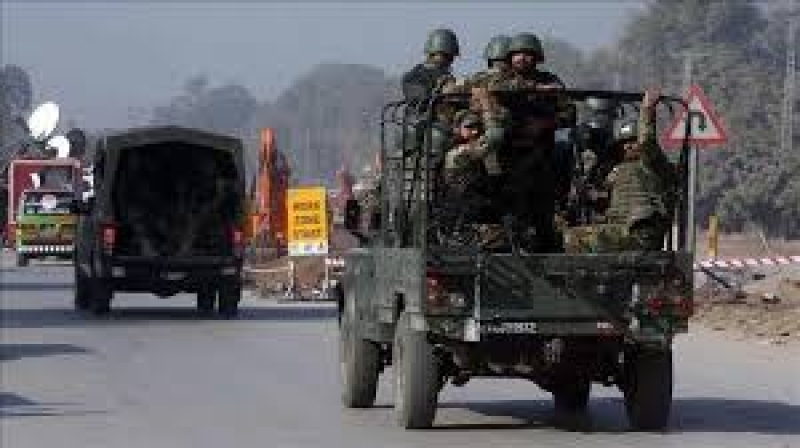- Irregularities, injustice will no longer be accepted in politics: Jamaat Ameer |
- 2 arrested in Jhenaidah for allegedly selling madrasa student |
- Koko’s wife campaigns for Tarique in Dhaka-17 |
- Bangladeshi Expats Cast 4.58 Lakh Postal Votes |
- IMF Forecasts Bangladesh GDP to Rebound to 4.7% in FY26 |
Clashes in Pakistan Kill 4 Soldiers, 15 Militants

Clashes in two volatile northwestern districts of Pakistan resulted in the deaths of four soldiers, including an officer, and 15 militants during counterterrorism operations on Saturday.
According to a military statement, the violence erupted when Pakistan’s forces launched intelligence-based raids on militant hideouts in Dera Ismail Khan and North Waziristan, regions that border Afghanistan.
The statement identified the militants as “khwarij,” a term used by the government to describe individuals linked to the Tehrik-i-Taliban Pakistan (TTP), a globally designated terrorist group. Local security sources reported that the soldiers were killed in fighting in Waziristan.
The claims of militant casualties could not be independently verified, and the TTP has not commented on the clashes. The group frequently targets security forces and installations in these areas.
Pakistan accuses the TTP of using safe havens in Afghanistan to carry out cross-border attacks, with the support of the Taliban regime in Kabul, which has not been internationally recognized. This has led to heightened tensions between Pakistan and Afghanistan, with Islamabad calling for the elimination of these terrorist sanctuaries.
Pakistani Foreign Ministry spokesperson Shafqat Ali Khan stressed that unless this issue is resolved, the potential for regional cooperation and bilateral benefits would remain unfulfilled.
The United Nations' latest report on the situation, released this week, highlights Islamabad’s concerns, noting a significant increase in TTP attacks originating from Afghan territory. It also pointed out that the Taliban in Afghanistan continues to provide logistical and operational support to the TTP, including new training centers in various Afghan provinces.
The U.N. report also raised alarms about the growing presence of al-Qaeda and the regional Islamic State affiliate, IS-Khorasan, in Afghanistan. Despite these findings, the Taliban government in Kabul dismissed the U.N. report as inaccurate, asserting that no foreign terrorist groups are operating in Afghanistan.
Zabihullah Mujahid, the Taliban’s spokesperson, rejected the accusations, accusing foreign governments of waging a propaganda campaign against Afghanistan.

